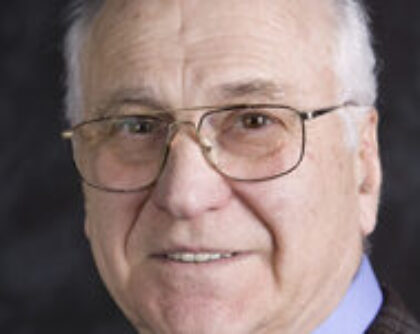Bruno Coppi
Research Interests
Professor Bruno Coppi has given basic contributions to the fields of plasma physics, nuclear fusion research, space physics and plasma astrophysics. He is the leader of the international undertaking, “Physics of High Energy Plasmas,” based at MIT, and of the Ignitor Project in Europe. Professor Coppi has developed novel experimental programs on thermonuclear plasmas, both in the US and overseas, the results of which have led to the proposal and design, for the first time, of experiments capable of demonstrating ignition by nuclear fusion reactions.
Biographic Sketch
Professor Coppi was named full Professor at MIT in 1968 after carrying out research in theoretical plasma physics, fusion, and space physics at Princeton University, Stanford University, UC-San Diego and the Institute for Advanced Studies, Princeton University.
In addition to his theoretical contributions to these fields, he developed the Alcator (experimental) Program at MIT, which is one of the three main experimental efforts on magnetically confined plasmas in the U.S. He also started the Frascati Torus Program, presently the major experimental undertaking on plasma physics in Italy, and developed and leads the Ignitor Program, based in the U.S. and Europe. Ignitor arose directly out of the Alcator program and has been the first experiment proposed and designed to reach ignition by nuclear fusion reactions in the laboratory. He was a member of the Voyager II science team for encounters with Uranus (1986) and Neptune (1989).
Professor Coppi has been a member of the American Academy for Arts and Sciences since 1976. He received both the Maxwell Prize and the Award for Excellence in Plasma Physics of the American Physical Society. He also received the Prize for Science of the Italian Government and the International Italgas Prize for Science and Technology. Other awards include the Theresian Medal by the University of Pavia (together with K. Popper), the Dante Alighieri Prize in the U.S., the Distinguished Achievement Award for Fusion Research by the U.S. F.P.A, and the Gold Medal of the Polytechnic of Milan. He has been knighted Great Officer of the Order of Merit of the Republic by the President of Italy. He is a fellow of the American Physics Society and of the American Association for the Advancement of Science.
Professor Coppi was formerly Chairman and a founder of the Plasma Astrophysics Subdivision of the American Physical Society. He has been a director of three of the International Conferences on Plasma Astrophysics (including the E. Fermi School at Varenna) and of the original Varenna International Courses on Plasmas Close to Thermonuclear Conditions. He served on, and was chairman of, the American Physical Society Committee on the International Freedom of Scientists.
Since his days at Princeton University, Professor Coppi has annually presented invited papers and lectures at major international conferences, universities and research centers on plasma physics, space physics, astrophysics, fusion research, and technology for advanced experimental machines.
Awards & Honors
- 2004 // Distinguished Career Award “For contributions to Basic Plasma Physics and Nuclear Fusion Research.”
- 2004 // University of Pisa Medal, received on the occasion of the 25th FPA Anniversary, Washington, DC
- 2004 // Galilean Lecturer, University of Pisa
- 2001 // Knighted a Great Officer of the Order of Merit of the Republic of Italy
- 1987 // James Clerk Maxwell Prize for Plasma Physics (APS) "For outstanding contributions to fundamental theory, experimental interpretation and engineering design in fusion research. Among his theoretical discoveries are the ion mixing, impurity gradient, and ubiquitous modes and his work on m=1 tearing has recently been extended to explain anomalous loss of fast particles. His experimental interpretations include confinement scalings, slideaway electrons, detailed transport laws, and the principle of profile consistency. He has pioneered in the conceptual and engineering design of high field tokamaks, many of which now operate successfully, and which serve as the basis for proposals for low cost fusion ignition devices such as Ignitor."
- 1985 // American Association for the Advancement of Science Fellow
- 1983 // John Dawson Award for Excellence in Plasma Physics (APS) "For basic experimental contributions to the understanding of tokamak plasma physics and the advancement of magnetic fusion research into the reactor plasma regime."
- 1976 // American Academy of Arts and Sciences Member
Key Publications
-
B. Coppi, “Accretion theory of ‘spontaneous’ rotation in toroidal plasmas,” Nucl Fusion 42, 1: 1-4 (2002).
-
B. Coppi, G. Laval, and R. Pellat “Dynamics of the Geomagnetic Tail,” Phys. Rev. Letters 16, 26: 1207-1210 (1966).
-
B. Coppi, M.N. Rosenbluth, and R.V. Sudan “Non-linear Interactions of Positive and Negative Energy Modes”, Ann. Physics 55, 2: 248-270 (1969).
